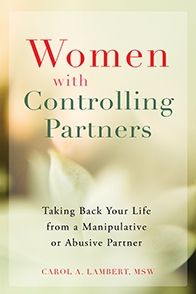
Once you send your book out to literary agents or acquisitions editors, you’ll receive responses from them. But how do you interpret what they say?
What Does Agent Rejection Really Mean? How to Rebound Quickly from a “No.”
Recently I sent a client book proposal to three literary agents and all three expressed some concerns about the author’s platform.
I’d already warned the author that we might get that response, even though he’d done some strong work on platform and had amassed a modest mailing list and twitter following, plus a strong story to tell when it came to speaking gigs and corporate training. Still, agents want to see larger and larger platforms nowadays.
I had a few ideas about expanding platform and rewording a few paragraphs before sending to more agents, but my client didn’t want to wait. I’d told him how publishing all but shuts down in the summer and he wanted to have a publisher by then.
“I just have a feeling that it’s important to strike quickly.”
No problem. I enjoy relationships with acquisitions editors at several niche publishing houses that were not only a strong fit; one was actually his “dream publisher”—the one he had imagined publishing with from day 1.
We queried acquisitions editors at two niche publishers and both requested the proposal. A colleague of my client’s who had been asked to write the foreword offered to send the proposal to his much larger publisher as well. Within a week two publishers wanted to speak to him and both expressed specific tweaks based on their particular audiences.
“What’s this mean? Is it a good sign?” my client asked when he saw the emails from the acquisitions editors. After all they were expressing some questions and possible changes. Were they fishing? Serious?
Acquisitions editors are busy.
Terrifically busy.
They won’t waste even a minute on an email if they aren’t fairly serious.
Interested Acquisitions Editors Want to Get to Know You
These acquisitions editors weren’t just serious but excited. They wanted to speak to the author to get a sense of him. They wanted to know if he’d “fit in” with their publishing house, their brand, their vibe, their “family.”
Both conversations lasted well over an hour. This month, both editors will propose the book to their acquisitions boards.
Sometimes, as an author, it’s hard to understand the signals you get from agents or publishers and what to make of them.
[bctt tweet=”Interpreting Responses from Literary Agents and Acquisitions Editors (Publishers)” username=”LisaTener”]
Here are some tips to interpret their responses:

Rejection by an agent: Rejection by an agent does not necessarily mean a publisher won’t take interest. If you’ve done your homework on the agent, we can rule out that the book is totally inappropriate. However, it may be that your subject doesn’t excite them. They don’t have any personal stake in the topic.
An agent may also reject a book in a competitive arena because they don’t see how your book is different enough from others on the market to warrant a publishing deal. It’s your job to write a book proposal that makes the case for your book.
An agent’s rejection may also mean that the agent thinks the book is publishable, but not likely to generate a big enough advance and book sales to justify the amount of time they would need to put into selling it. 15% of a $3,000 advance or even a $10,000 advance means $450 or $1,500 for the agent. For so many hours of work, it becomes a question of practicality.
How do you discover the sub-text behind a rejection by an agent? Ask. Sometimes agents won’t tell you, but many times they will. If your rejection was by email, which is usually how it works nowadays, you can email back, thanking them for their time and asking them for specific reasons for the rejection and any suggestions they have for improving the proposal.
[bctt tweet=”Your Next Steps After Rejection by A Literary Agent” username=”LisaTener”]

When you get that feedback, take it seriously and see how you can improve the proposal or take a few important steps to address a seemingly inadeqate platform. My client decided to hustle and secure a handful of future speaking gigs to audiences over 1,000 people each. That added significant quantitative sizzle to his Author Platform and Promotions sections.
When it comes to the Promotion section of your book proposal, publishers want to see promotion based upon what you are already doing. Saying he had contacts at large churches was not the same as having scheduled sermons.
If you receive rejections by agents, but get the sense from them that platform is their biggest concern, like I did for my client, you can identify potential niche publishers to contact directly. With a strong niche, these publishers may already be reaching your ideal audience. So, they want to see some platform, but they are also comfortable with the synergy created when their platform meets yours. This is not so true with a more general publisher that does not necessarily reach a niche audience that your book may target.
[bctt tweet=”Interpreting Acquisitions Editor Feedback” username=”LisaTener”]

A literary agent may know certain acquisitions editors intimately and be able to tweak a proposal depending on the editor they are sending to. Even agents, however, will often need to respond to specific concerns expressed by an editor.
The acquisitions editor who contacts you back with some concerns and questions is interested. They want to determine whether you are a good match for their house and also see whether any perceived weaknesses can be turned into strengths.
They may want more information about how your book fits in with the current market. Speaking with you can give them a sense of how well you understand that market.
Or they may have suggestions for you to focus on improving one particular area of your platform, such as social media, speaking or traditional PR.
An editor in a niche publishing house may want to make a few tweaks that work best for their niche market based on their extensive experience. Here’s one way in which a niche publisher can be especially helpful: They may know that by narrowing the scope of your title, you may actually improve sales potential (something the niche publisher mentioned about my client’s book); whereas, a bigger publisher may not even know that if they have published only a few books in this market versus the dozens or hundreds the niche publisher has published on your topic.
Getting Acquisitions Editors On Board
An acquisition editor’s goals in an intial phone call are:
- To determine how good a fit you are with their house and how easy you may be to work with.
- To address any perceived weaknesses or concerns enough to decide whether they want to publish your book.
- Should 1) and 2) be positive, to work together with you to make the best case for your book at an upcoming acquisitions board meeting.
Consider the phone meeting (or sometimes it’s a meeting in person with a publisher) an opportunity to connect, show how flexible you are, demonstrate your willingness to address weaknesses or concerns–including doing some additional platform building or changes to the proposal before the meeting, and give them any ammunition they think they may need during the acquisitions board meeting.
There would not be a phone meeting unless this editor felt quite serious about your book. They don’t have time for idle chatter.
If they’ve already expressed some concerns in the email, come to the phone discussion with notes on how you plan to address the concerns. Feel free to bring a list of questions of your own. If you are working with a book coach, do some role playing. Ask your coach or agent to be on the call with you.
On the call, answer questions honestly. Misleading a publisher will come back to bit you in the end, no pun initially intended. Ask questions. Make sure you understand the editor’s reasoning for any changes and that you feel comfortable making those changes. Don’t agree to anything that makes your gut clench.
Remember, you are assessing fit as well. Do you feel you could work well with this acquisitions editor? Are they flexible? Do they want to hear your views or just push for their own? Can you imagine a long term relationship with this person? Michael Larsen talks about the editor-author relationship being like a marriage. This is your first date, with marriage in mind.
To Your Next Steps
Emailing and speaking with agents and publishers is an exciting step. Enjoy and good luck!
Do you have questions about your own experiences with literary agents and acquisitions editors or questions about the process of approaching them? Ask your questions as a comment and I will happily answer.



Truly solid advice. Any author going trad will benefit from this!
Octavia, it is so wonderful to hear from you! Your comment prompted me to look at your website and I was thrilled to see all the novels in the beloved Circle of Cerridwen series. I now have my summer reading planned! I’ll be reading books 3 through six before I circle back to re-enjoy books 1 and 2! Congratulations. I enjoyed your videos as well!
I’ve read several of your articles concerning agents and publishers. Thank you. My new book, Project Resiliency: Conversations with In-Country Vietnam Veterans, has had 28 rejections in a year and a half. Should I rewrite my proposal to make it sound like the book isn’t complete and the query is for a proposed idea?
Hi Jacqueline,
Congratulations on completing your book.
So, have you self published it? If so, the magic number (though by no means a one-size-fits-all) that we use in publishing is that if a self-published book sells over 15,000 copies a publisher starts to be interested. So if you’ve already published, that could be getting in the way. Another big issue is platform. Do you have a strong following through email, social media, blogging, speaking or other means? Are you reaching tens of thousands of a people a year? If not, that may be a deterrent to publishers who are looking for authors who already have a significant reach. Of course, without seeing the proposal, I can’t say what the issue is, but platform is often one of the biggest culprits. And if it’s already self-published, then publishers are looking to see that you’ve done an amazing job of book sales on your own.
In terms of rewriting your proposal, I’m not sure. It really depends on what the issue is. Have you gotten any feedback? Maybe the first step would be to write back to those who turned it down and ask why.
Thank you for your insight on the feedback very helpful. My query is that I have sent my children’s book to 8 agents. 2 have sent non standard responses. The first who read the whole title (rather than an excerpt) said that she had enjoyed it but did not feel passionately about it so found herself not in a place to represent it. The second much the same. What I am wondering is whether this means I am missing something in my story/characters or whether I have just not found the right agent yet? Any advice would be very much appreciated. My underlying concern for the title is that it is for 6+ and is 30,000 words… Am I just putting forward something that doesn’t fit the market? Yet no-one is actually saying this so I am unsure whether to edit further or just continue searching out agents. Thank you Vicky
Hi Vicky,
I am not an expert in children’s books. However, I’ll try my best to respond. Are you saying the book is for ages 6+? If so, from what I know, it does sound like a long book for that age group. Have you worked with a children’s book publishing professional? If not, email me and I can introduce you to a colleague who is a top expert in this field.
Lisa